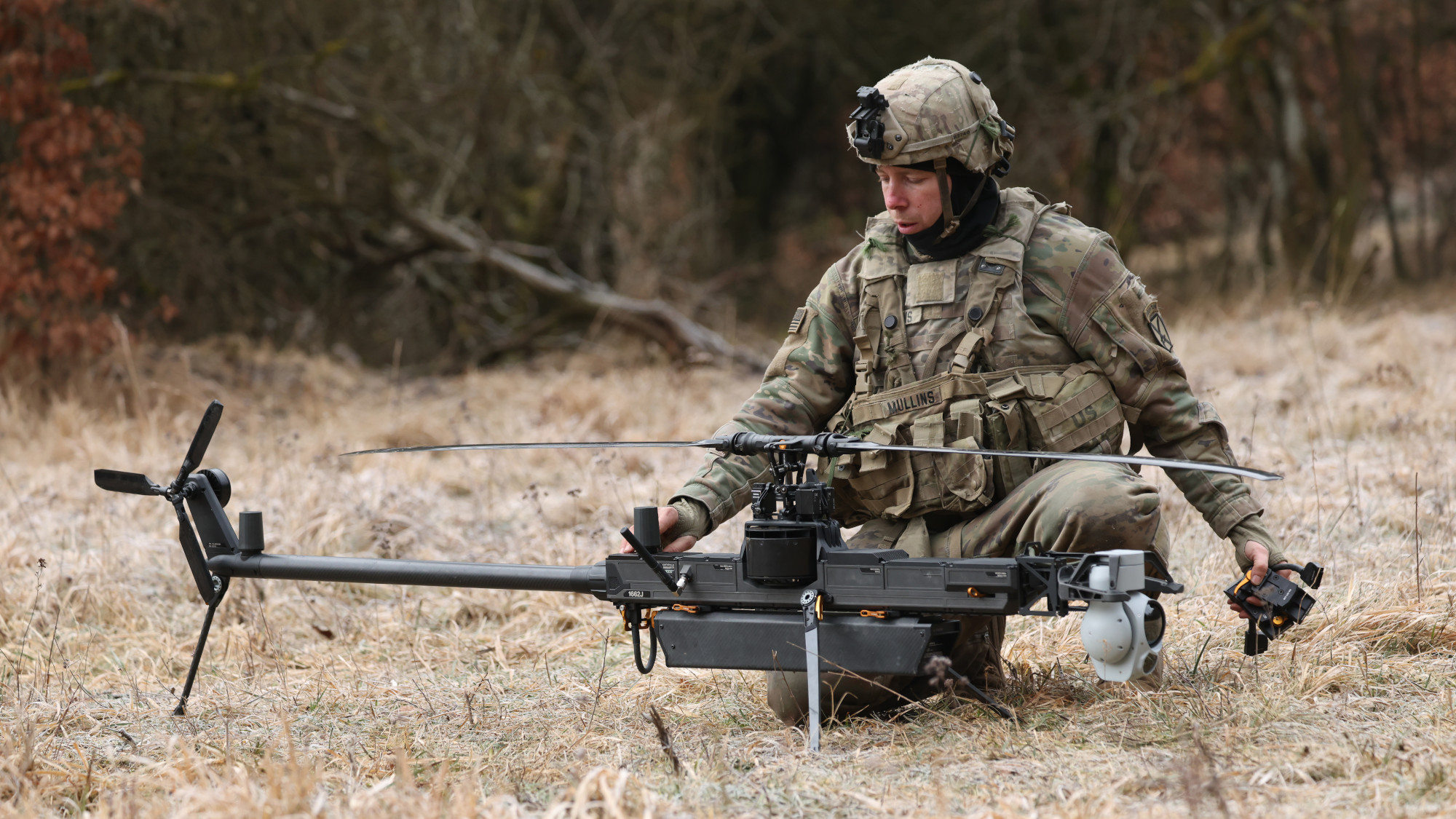Silicon Valley's military ambitions
Tech companies are replacing military contractors with AI, drones and battlefield systems

A free daily email with the biggest news stories of the day – and the best features from TheWeek.com
You are now subscribed
Your newsletter sign-up was successful
Silicon Valley is "finally getting its chance" to sell its vision to the Pentagon, said Paolo Confino in Fortune. Last month, President Trump signed several executive orders to "streamline how the Department of Defense acquires new defense systems," putting pressure on existing contractors whose creaky systems are overbudget and overdue. Silicon Valley has been the engine of innovation for the United States for decades. But it has long complained that Washington bureaucracy left tech companies "unable to compete with existing military contractors." In the Trump administration, tech firms have "found a welcome audience" willing to "take a page from their playbook." The "ongoing geopolitical tensions and AI arms race with China have only added more urgency to the issue."
Tech players are rapidly changing the model of warfare, said Lizette Chapman in Bloomberg. "Instead of dozens or even hundreds of soldiers supporting one $100 million system, one soldier using AI software could command dozens of cheap, autonomous weapons." That, at least, is the promise pitched by Palantir, which recently beat out RTX Corp. for a $178 million mobile military command contract, "the first time a software company" has taken "the lead role on a battlefield system." Anduril, another California startup, is raising billions of dollars to fuel the manufacturing of "a lengthening list of weapons, wearables, and surveillance systems." CEO Palmer Luckey is positioning his company as the counter to China's military, which is rapidly moving from "hyper-sonic and self-guided missiles to drone swarms that can augment or someday replace manned fighter jets."
"We are entering a new era where machines go to war," said Zoë Corbyn in The Guardian. This has produced a need for the innovation that the legacy stalwarts, like Boeing and Lockheed Martin, can't provide. The U.S. now "has more than 1,000 venture-capital-backed companies working on 'smarter, faster, and cheaper' defense," like drones that travel underwater, microwave-ray guns, and even self-flying fighter jets. But some experts worry that the money pouring into defense tech— $155 billion between 2021 and 2024—could push the U.S. and these companies toward wanting "to use them in war."
The Week
Escape your echo chamber. Get the facts behind the news, plus analysis from multiple perspectives.

Sign up for The Week's Free Newsletters
From our morning news briefing to a weekly Good News Newsletter, get the best of The Week delivered directly to your inbox.
From our morning news briefing to a weekly Good News Newsletter, get the best of The Week delivered directly to your inbox.
Just two years ago, said The Economist, Castelion, a company developing hypersonic missiles, "couldn't open a bank account in Silicon Valley because of the stigma attached to making weapons." But "defense" is no longer such a dirty word. The war in Ukraine helped change some attitudes. The deployment of "smaller weapons, notably drones," has created an opening for innovative upstarts. The transformation also reflects a broader cultural shift among tech leaders who have embraced Trump. Gone is the support for environmental and social causes. Patriotism is "the new corporate purpose."
A free daily email with the biggest news stories of the day – and the best features from TheWeek.com
-
 Health insurance: Premiums soar as ACA subsidies end
Health insurance: Premiums soar as ACA subsidies endFeature 1.4 million people have dropped coverage
-
 Anthropic: AI triggers the ‘SaaSpocalypse’
Anthropic: AI triggers the ‘SaaSpocalypse’Feature A grim reaper for software services?
-
 NIH director Bhattacharya tapped as acting CDC head
NIH director Bhattacharya tapped as acting CDC headSpeed Read Jay Bhattacharya, a critic of the CDC’s Covid-19 response, will now lead the Centers for Disease Control and Prevention
-
 Moltbook: The AI-only social network
Moltbook: The AI-only social networkFeature Bots interact on Moltbook like humans use Reddit
-
 Are AI bots conspiring against us?
Are AI bots conspiring against us?Talking Point Moltbook, the AI social network where humans are banned, may be the tip of the iceberg
-
 Silicon Valley: Worker activism makes a comeback
Silicon Valley: Worker activism makes a comebackFeature The ICE shootings in Minneapolis horrified big tech workers
-
 AI: Dr. ChatGPT will see you now
AI: Dr. ChatGPT will see you nowFeature AI can take notes—and give advice
-
 Can Europe regain its digital sovereignty?
Can Europe regain its digital sovereignty?Today’s Big Question EU is trying to reduce reliance on US Big Tech and cloud computing in face of hostile Donald Trump, but lack of comparable alternatives remains a worry
-
 Metaverse: Zuckerberg quits his virtual obsession
Metaverse: Zuckerberg quits his virtual obsessionFeature The tech mogul’s vision for virtual worlds inhabited by millions of users was clearly a flop
-
 The robot revolution
The robot revolutionFeature Advances in tech and AI are producing android machine workers. What will that mean for humans?
-
 Texts from a scammer
Texts from a scammerFeature If you get a puzzling text message from a stranger, you may be the target of ‘pig butchering.’